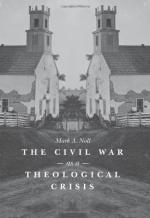|
This section contains 559 words (approx. 2 pages at 300 words per page) |

|
The Lyceum Movement.
Although the nation's public libraries first opened their doors during the 1850s, their origins go back at least two decades earlier, to the Lyceum Movement founded by Connecticut educator Josiah Holbrook. Inspired in part by the democratic impulse of the American Revolution, lyceums were intended as a "federation of adult educational organizations" whose members would "hold weekly . . . meetings, for reading, conversation, illustrating the sciences, or other exercises designed for mutual benefit." By 1835 there were over three thousand lyceums spread throughout the country and gradually began to accumulate book collections and build up archives filled with documents of local historical interest. In many areas the lyceums functioned as informal schools, compensating for the "failure of traditional institutions to respond to popular educational needs." Women, in particular, became avid participants in the affairs of local lyceums, and the institution played an important role in...
|
This section contains 559 words (approx. 2 pages at 300 words per page) |

|




